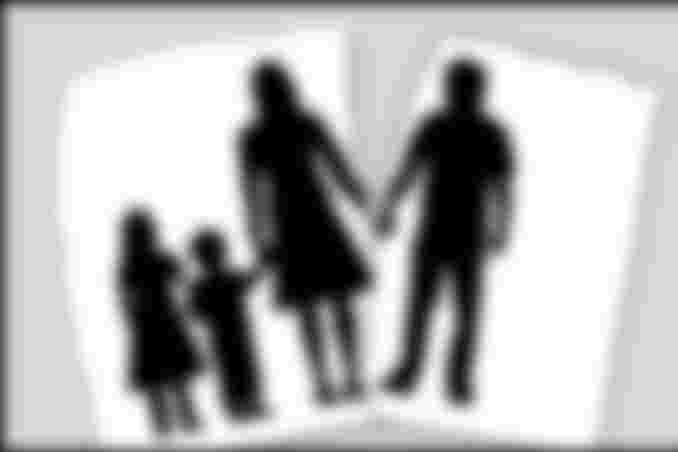
Your divorce may prove to be one of the most emotionally disruptive events of your life.
It’s a tough call to make. So when you choose to end your marriage, you’ll journey through conflicting emotions, ranging from relief to doubt.
Most people describe divorce as a roller coaster. To cope, you’ll need to rely on friends, family, and your social community. The support they’ll offer is important to your healing process and you should welcome.
5 Emotions During the Divorce Process :
There are 5 common emotions people experience during the divorce process. They are often referred to as the 5 stages of grief. They include denial, anger, bargaining, depression, and acceptance. Naturally, these expand to more nuanced emotions that vary based on your circumstances.
Denial :
Those who didn’t initiate the divorce often spend a significant amount of time in the denial stage. In certain cases, it may be the cause in a delayed response to divorce papers *. Denial provides comfort as it allows people to distance themselves from an overwhelming reality.
Related Reading: What Happens When You Do Not File an Answer to the Petition?
Anger :

The anger stage is frequently visited by both parties. It is heavy with blame, rage, and cynically dissecting events in your marriage. Because people suppress their emotions while in denial, emotions unleash when they evolve to this next phase. It’s important to be patient with yourself, and encourage your spouse to do the same. Otherwise, it can become consuming.
Bargaining :
The initiator is often surprised that they struggle with the bargaining stage. For those individuals, what they’re actually battling is doubt and guilt. As they weigh the odds, it leads them to question their decision and analyze the consequences. However, going back and forth during this stage is common.
Depression :

Truthfully, the length of this stage is often long. It can also be the most difficult. It is the darkest period of the night right before dawn. At this point, the reality of the situation has settled in for both sides. This wave of understanding is often overwhelming, sometimes debilitating. During this phase it’s important to lean on your support system and accept help when offered. It’s important to seek counseling for children if they are also struggling with depression. For all parties affected, a trained and experienced therapist can be a worthwhile investment in long-term healing.
Acceptance :
Most people find what they consider peace during this phase. Beyond dealing with their reality, they are able to embrace it with hope for the future. You may still experience some negative emotions. It’s also common at this stage to briefly revisit one of the prior stages.

Divorce is difficult for all members of the family. For children, trying to understand the changing dynamics of the family may leave them distracted and confused. This interruption in their daily focus can mean one of the effects of divorce on children would be seen in their academic performance. The more distracted children are, the more likely they are to not be able to focus on their school work.
Loss of Interest in Social Activity :
Research has suggested divorce can affect children socially, as well. Children whose family is going through divorce may have a harder time relating to others, and tend to have less social contacts. Sometimes children feel insecure and wonder if their family is the only family that has gotten divorced.
Emotionally Sensitive :
Divorce can bring several types of emotions to the forefront for a family, and the children involved are no different. Feelings of loss, anger, confusion, anxiety, and many others, all may come from this transition. Divorce can leave children feeling overwhelmed and emotionally sensitive. Children need an outlet for their emotions – someone to talk to, someone who will listen, etc. – children may feel effects of divorce through how they process their emotions.
Anger/Irritability :
In some cases, where children feel overwhelmed and do not know how to respond to the affects they feel during divorce, they may become angry or irritable. Their anger may be directed at a wide range of perceived causes. Children processing divorce may display anger at their parents, themselves, their friends, and others. While for many children this anger dissipates after several weeks, if it persists, it is important to be aware that this may be a lingering effect of the divorce on children.
Feelings of Guilt :
Children often wonder why a divorce is happening in their family. They will look for reasons, wondering if their parents no longer love each other, or if they have done something wrong. These feelings of guilt are a very common effect of divorce on children, but also one which can lead to many other issues. Guilt increases pressure, can lead to depression, stress, and other health problems. Providing context and counseling for a child to understand their role in a divorce can help reduce these feelings of guilt.
Introduction of Destructive Behavior :
While children go through a divorce, unresolved conflict may lead to future unexpected risks. Research has shown children who have experienced divorce in the previous 20 years were more likely to participate in crimes, rebelling through destructive behavior which harms a child's health, with more children reporting they have acquired smoking habits, or prescription drug use.
Loss of Faith in Marriage and Family Unit :
Finally, despite hoping to have stable relationships themselves when they grow up, research has also shown children who have experienced divorce are more likely to divorce when in their own relationships. Some research indicates this propensity to divorce may be two to three times as high as children who come from non-divorced families.
Yet, while these are some of the possible effects of divorce on children, they are by no means absolutes, or written in stone. More and more, families understand just how stressful divorce is for their children, as well as their selves.
Through our Collaborative Divorce program, we are helping families more successfully navigate this transition, both for the sake of the parents, and for the children involved.




🙃🙃🙃yeah very sad .Most people describe divorce as a roller coaster. To cope, you’ll need to rely on friends, family, and your social community. The support they’ll offer is important to your healing process and you should welcome.
5 Emotions During the Divorce Process :
There are 5 common emotions people experience during the divorce process. They are often referred to as the 5 stages of grief. They include denial, anger, bargaining, depression, and acceptance. Naturally, these expand to more nuanced emotions that vary based on your circumstances.they don't have any sense,😝thank you.